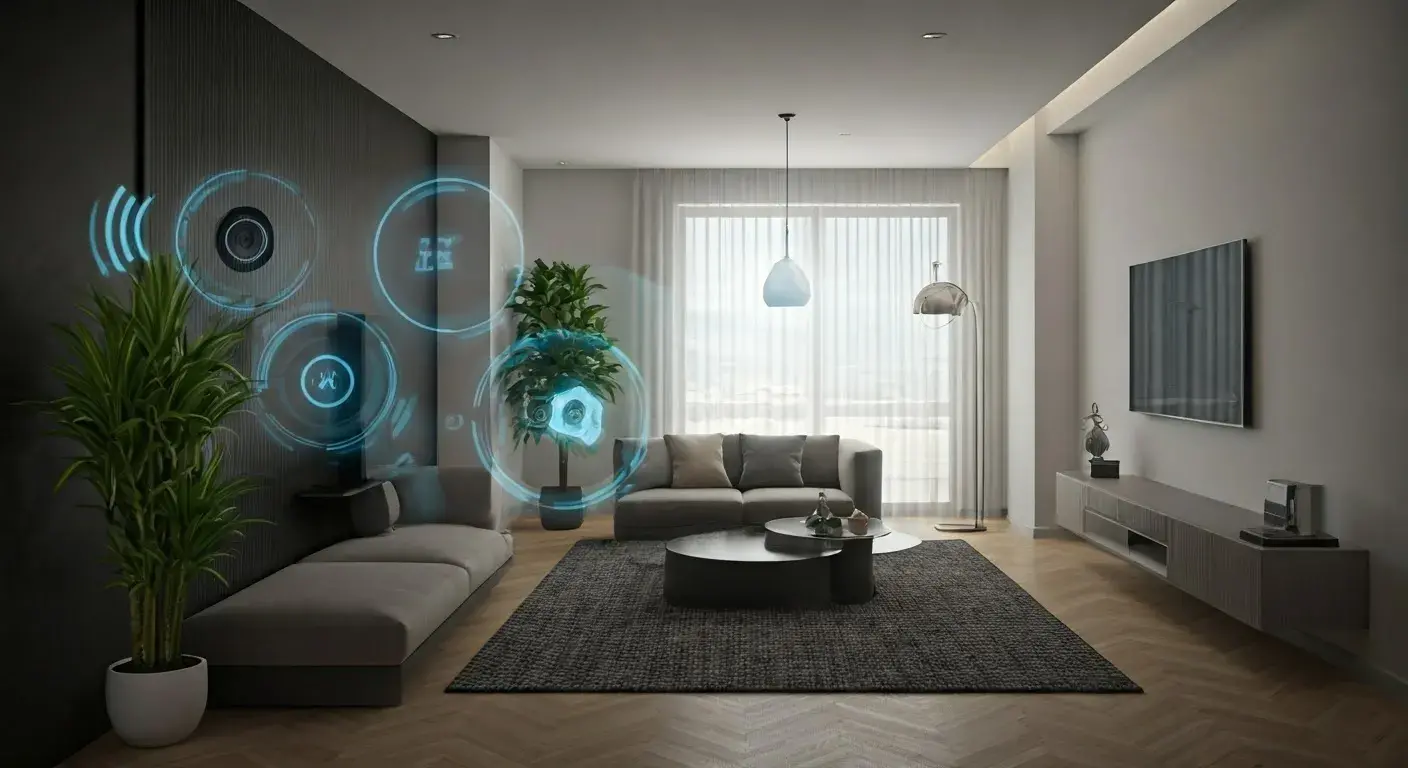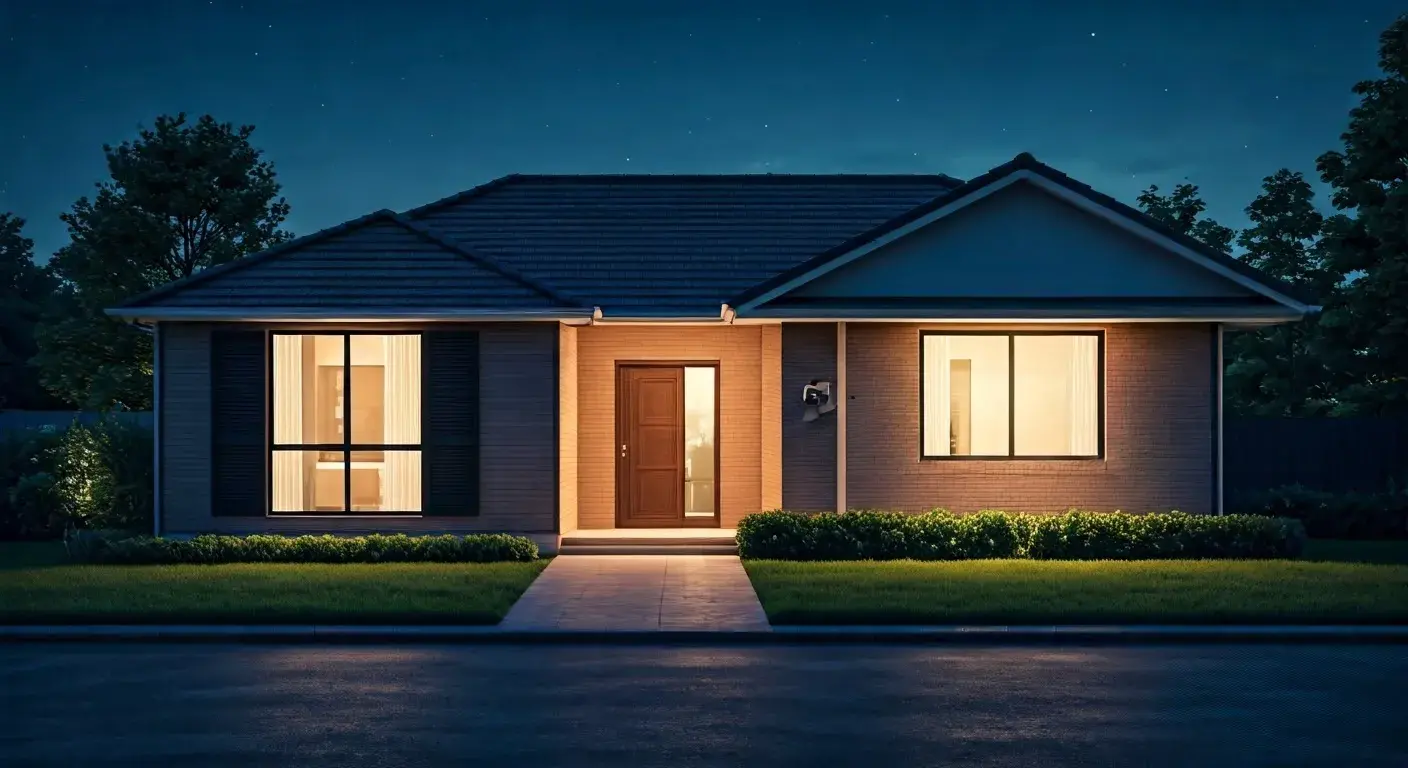In today's world, keeping your home and loved ones safe is very important. At one time, professional security systems were the best choice. Now, DIY home security systems are a great option too. They are affordable, flexible, and easy to set up. This guide will help you understand DIY home security better. You will learn how to keep your home safe and check out some of the best options for 2024. Let’s start this journey to better home protection.
Understanding DIY Home Security Systems
DIY home security systems are a smart and budget-friendly way to protect your home. Unlike traditional systems, which often require professional installation and long contracts, DIY systems put you in charge. These usually include wireless sensors, cameras, and a central hub that connects to your home Wi-Fi.
The best part about DIY is that it is simple and affordable. You can buy a starter kit with the basic tools and add more as your needs change. Plus, most DIY systems allow you to monitor your home yourself with easy-to-use mobile apps.
The Basics of DIY Security Systems
DIY security systems rely on connected parts that work together. The control panel is the main piece. It acts like the brain of the system. This panel takes signals from different sensors placed around your home. It also lets you know what is happening. If you are subscribed, it can alert a monitoring service too.
Motion detectors are often set up in busy areas. They notice movement in their range and either set off an alarm or send you a message. Meanwhile, door and window sensors check if these spots are opened or tampered with.
These key parts create a strong first line of defence. They help stop possible intruders and keep you updated about your home's security status.
Key Components of a Successful DIY Security Setup
In addition to the basics, some key parts can boost your DIY security setup. A video doorbell is one example. This device lets you see and talk to visitors from anywhere, even if you are not home.
Smart locks are another great addition. They provide keyless entry and help you keep an eye on who comes and goes. You can give temporary access to guests or service providers. You will also get alerts when your door is unlocked.
Adding an alarm system can make your setup even stronger. The loud sound of an alarm can scare away intruders and warn neighbours about possible danger.
Evaluating Top DIY Home Security Systems for 2024
With so many DIY home security systems available, picking the right one can be tough. Don’t worry! We will look at important factors to help you decide. By understanding your needs and what is important to you, you can better narrow down your options. This will help you find the system that fits your needs and budget best.
Criteria for Evaluation
When you choose a DIY home security system, there are some key things to think about. First, check if you can have a professional installation. This is important if you don’t feel good setting up the system by yourself.
Next, look at the video storage options. If you plan to use cameras, cloud storage is important. This kind of storage keeps your videos safe online. It's often part of a subscription deal. It lets you access recordings even if your cameras are broken.
Finally, think about a professional monitoring service. You can monitor things yourself, but having professionals means extra safety. They can get alerts and reach emergency services if needed.
Overview of Leading DIY Security Systems
The world of DIY home security has many new and trustworthy choices. Several top products stand out for their performance, features, and ease of use. These systems work well with smart home devices, like smart speakers and lighting controls. This adds convenience and automation to your home.
The best DIY home security systems are easy to use. You can control your system fully with user-friendly mobile apps. These apps let you arm and disarm your system, view live video feeds, adjust settings, and get notifications from anywhere as long as you have an internet connection.
In-Depth Reviews of Top-Rated DIY Home Security Systems
Now, we will give you detailed reviews of the best DIY home security systems that are available in 2024. Our goal is to share all the information you need. This way, you can compare the different options. We want to help you choose the system that best fits your home security needs and preferences.
SimpliSafe: Comprehensive Protection Simplified
SimpliSafe is well-known in the DIY home security market for making systems that are easy to use and trustworthy. They have many packages that fit different needs, from simple starter kits to complex setups. The SimpliSafe system is designed to be easy to set up, which makes it popular with those who like to do things themselves.
A key feature of SimpliSafe is its optional professional monitoring service. For a reasonable monthly fee, you can have 24/7 monitoring by trained professionals. They will respond quickly if an alarm goes off. SimpliSafe also provides a police response feature, ensuring that police can come to your home right away if needed.
Vivint Smart Home: Intelligent Security Solutions
Vivint Smart Home stands out because it focuses on smart security solutions. These solutions are more advanced than regular alarm systems. Vivint has a complete smart home platform. It connects security with other home features, like lights, thermostats, and door locks.
Their security systems use top-quality equipment and come with advanced features. These include facial recognition and home automation. Vivint also offers a professional monitoring service. This service brings peace of mind with 24/7 protection and quick emergency response.
Ring Alarm Pro: Versatile and Integrated System
Amazon's Ring is well-known for video doorbells, but they also offer strong DIY home security systems like the Ring Alarm Pro. This helpful system works well with Ring's many cameras, doorbells, and smart lighting products.
The Ring Alarm Pro is special because it combines security and network functions. It has a built-in Eero Wi-Fi 6 router. This means it serves as both a security hub for your home and a strong mesh Wi-Fi system. This setup keeps all your Ring devices connected without problems.
Abode iota All-In-One Security Kit: Compact and Efficient
If you are looking for a small but effective way to protect your home, the Abode iota All-In-One Security Kit is a great choice. This kit has a strong built-in camera, a motion sensor, and an alarm system, all in a smart and stylish design.
The Abode iota works well with smart home systems. It easily links to popular platforms like Apple HomeKit, Amazon Alexa, and Google Assistant. This lets you control it with your voice and set up automation.
Arlo Home Security System: High-Definition Surveillance
Arlo is known for its top-notch security cameras. The Arlo Home Security System continues this tradition with a focus on clear video quality. The system features many wire-free cameras that capture great video, even in tough lighting.
What makes Arlo special is its flexibility and ability to grow. You can change your system by adding different Arlo cameras. Some cameras have spotlights, two-way audio, and colour night vision. Arlo also has a video doorbell to complete your home security setup.
DIY Security Systems: Installation and Maintenance
One big benefit of DIY home security systems is how easy they are to set up. You no longer need to depend on experts or plan appointments. With DIY systems, you can install and arrange your system whenever it works best for you.
Step-by-Step Installation Guides
DIY home security providers know that not everyone is good with technology. So, they work hard to make installation easy. Most systems include simple, step-by-step guides. These guides help you set up everything, from connecting the hub to your Wi-Fi to placing sensors around your home.
The guides have helpful diagrams and clear instructions. They also provide troubleshooting tips if you run into problems. You can also find many resources online. Things like video tutorials and FAQs can help make the installation even simpler.
Maintaining Your DIY Home Security System
Once your DIY security system is working, it’s important to make a maintenance plan. This will help keep it working well for a long time. Regular maintenance tasks are easy and can help avoid problems later.
Start by checking the battery levels of your sensors and control panel. Change them if needed. Most systems will alert you when the battery is low, giving you time to replace them. Also, from time to time, dust or wipe your sensors and cameras. This keeps dirt or debris from affecting how they work.
Advanced Features to Consider in a DIY Home Security System
DIY home security systems have improved a lot since they first started. Today’s systems come with many advanced features that boost home protection. These new features not only make your home more secure but also fit easily into your daily life. They bring you convenience and peace of mind.
Home Automation Integration
Integrating your DIY security system with your smart home makes life easier. Choose systems that work well with Google Home or Apple HomeKit. This way, you can manage your security along with other smart home devices.
For example, you can set up routines that activate your security when you go out. At the same time, it can adjust the thermostat and turn off the lights. You can do all this with just one voice command or by scheduling it. There are many ways to customize the system to fit what you need.
Smart Alerts and Notifications
Real-time notifications and alerts are important features in today's security system. DIY systems are great at this. They send you instant updates about your home's security directly to your smartphone or mobile device. You can customize these smart alerts. This way, you only get notified about what matters to you.
If a door sensor goes off, motion is detected, or your alarm rings, you will get an immediate notification. This allows you to act quickly. Some systems let you choose different sounds for different alerts, making it even easier to stay aware.
Customization and Scalability
Every home is different, and your security system should match that. The best DIY home security systems let you customize and change them to fit your needs. You can go beyond basic settings and make the system work with your lifestyle.
If you want to add more sensors for new entry points, set up outdoor cameras to increase your home's security or connect smart devices for convenience, a DIY system can change as your needs change. This flexibility helps your security system grow and adjust to your home and way of living.
Cost Analysis of DIY Home Security Systems
One of the main attractions of DIY home security systems is that they are cheaper than traditional systems that are installed by professionals. However, it's important to take a closer look at the costs. This will help you understand the total financial impact and make sure you are getting the best value for your money.
Initial Setup Costs vs. Long-Term Savings
DIY home security systems typically involve lower upfront costs than traditional systems. You'll primarily incur expenses for purchasing the equipment, which varies in price depending on the brand, features, and the number of devices included in the package.
Here's a breakdown of typical initial costs:
While the initial investment might seem significant, it's essential to consider the long-term savings. DIY systems eliminate the need for expensive professional installation fees and often come with more flexible and affordable monitoring options.
Comparing Subscription Models and Free Options
Many DIY home security system providers have optional subscription plans. These plans give you extra features and benefits. Common benefits include professional monitoring, cloud storage for video recordings, and other useful services. The monthly fee for these plans differs depending on the provider and the service level you select.
It is important to consider the monthly fee and the benefits you will get. Some providers have free options with limited features. These may offer basic self-monitoring and limited cloud storage. If you have a tight budget, these free plans can be a good start. However, if you want complete protection and peace of mind, paying for a subscription plan is often a good idea.
Security System Enhancements and Accessories
Improving your DIY security system with extra accessories can greatly boost your home's safety. These extra tools meet different security needs and give you more protection than the basic parts. Think about getting accessories that improve your system's functions and provide custom security solutions.
Must-Have Accessories for Enhanced Security
Several important accessories can improve your security setup. Security cameras, for example, can act as a visual warning and record important evidence if someone breaks in. Choose cameras that have night vision, motion detection, and two-way audio for better use.
Glass break sensors are another useful tool. They can hear the sound of breaking glass and set off an alarm. This is especially helpful for windows and glass doors that standard door or window sensors might miss.
Also, think about adding more motion sensors. This can help watch larger areas or busy spots in your home.
Upgrading Your DIY Security System with New Technologies
The world of home security is always changing. New technologies help make homes safer. You can keep up by updating your DIY security system with the latest features.
One option is to add smart plugs to your security setup. These handy devices let you control appliances and lights from far away. This way, it looks like someone is home, even when you are not. You can also set smart plugs to turn lights on and off at certain times. This can help scare off possible intruders.
Professional vs. DIY Home Security Systems
The discussion about professional and DIY home security systems keeps going among homeowners who want the best safety for their homes. Each option has its benefits and downsides. It’s important to know the differences to find out which choice is better for your needs.
Benefits and Limitations of DIY Systems
DIY home security systems are becoming very popular because they offer many great benefits. First, they cost a lot less than professional systems when you look at the price of the equipment and installation. With DIY systems, homeowners can manage their security without needing to hire a technician. This saves money on installation.
Another great thing is the flexibility and customization these systems provide. With DIY systems, you can pick the parts and features that fit your needs and budget. You might start with just a basic setup. Then, you can easily add more sensors, cameras, or smart devices later on if you need to.
When to Consider Professional Installation
While DIY home security systems are great for many homeowners, some situations may need professional installation. If your property is big or has many entry points and levels, professionals can make sure every area is well protected.
Also, if you do not feel confident in dealing with wiring or setting up a security system, professional help could be the best choice. Trusted security companies have skilled technicians who can install and set up the system correctly, reducing the chance of mistakes.
User Experiences and Testimonials
User experiences and testimonials are important. They can show you how well DIY home security systems work in real life. By listening to real users, you can learn about the good and bad sides of these systems. You can also get a sense of how happy people are with their decision to install them in their homes.
Success Stories of DIY Home Security Implementations
Many success stories show how DIY home security systems can stop crime and give people peace of mind. Homeowners talk about times when their systems have stopped break-ins, captured important evidence, or just helped them feel safe.
For families with young kids or older family members, DIY security systems offer extra comfort. Having a dependable system ready to spot problems or warn them about emergencies gives them great peace of mind.
Common Challenges and How to Overcome Them
DIY home security systems have many benefits. However, users can face problems when installing, setting up, or using them daily. A common issue is false alarms. Pets, weather changes, or system errors can cause these alarms. This can lead to worry and may even result in expensive fines for false alarms.
The good news is most new DIY systems are designed to reduce false alarms. They often have features like adjustable sensor sensitivity. You can also set delays for entering or exiting your home. This gives you enough time to turn the system on or off without setting off an alarm.
Navigating Legal Considerations and Privacy Concerns
When using any technology to watch over your home and collect data, you need to think about the legal and privacy concerns of setting up a DIY home security system. It's important to know your rights and duties as a homeowner with a security system. This knowledge helps you follow the law and protect your privacy.
Understanding Surveillance Laws in the United States
Surveillance laws differ a lot between states in the United States. It is important to know the rules in your area. These laws mainly talk about the use of security cameras and how they relate to recording audio and watching public places. Generally, you can record videos on your property, but there are some limits.
For example, you usually cannot record audio unless everyone in the conversation agrees to it. Also, there are rules against recording in places where people expect privacy, like bathrooms or changing rooms.
Privacy Implications and Ethical Considerations
It is important to think about privacy and ethics when it comes to owning a DIY home security system. As a homeowner, you need to find a balance between keeping your home safe and respecting the privacy of your family, guests, and neighbours.
If you decide to set up cameras, make sure to let people know they are there when they come onto your property. Also, be careful where you put the cameras. You should avoid gettinvideoseo from other people's homes or public areas unless it is necessary.
Preparing for the Future: Trends in Home Security
The field of home security is always changing. This change comes from new technology and the desire of people to have smarter security systems. By keeping up with the latest trends in home security, you can make better choices and get your home ready for better protection in the future.
Emerging Technologies in DIY Home Security
Emerging technology is set to greatly improve home security. It will make it smarter and better at spotting and stopping threats. Artificial intelligence (AI) is key here. It helps security systems tell the difference between real threats and harmless things. This way, it reduces false alarms.
Also, facial recognition is now part of DIY security systems. This technology helps the systems recognize familiar people and give personal responses. For example, you could get a notification when your child is home from school. This alert could even come with a video of their arrival.
Predictions for the Evolution of Home Security
The way we protect our homes is changing quickly. Experts think that soon, DIY security systems will be built right into our houses. These systems will offer complete protection that fits our personal needs and way of life.
A big trend coming is proactive security. Instead of just reacting after something happens, future home security systems will use AI and predictions to spot possible dangers before they happen. They will act to prevent problems from arising.
Conclusion
In a world where safety is very important, DIY home security systems can give you peace of mind and protection. Knowing the basics and looking at the best systems can help make your home safer. These systems offer features like smart alerts and can be customized to fit your needs. Think about the costs to set it up compared to the savings over time. You can also look for advanced features for extra protection. Whether you pick professional help or do it yourself, choose a system that fits well with your life. Stay updated with new trends to keep your home safe against changing threats. Protect your home easily with the right DIY home security system today.






